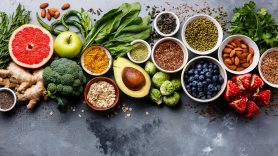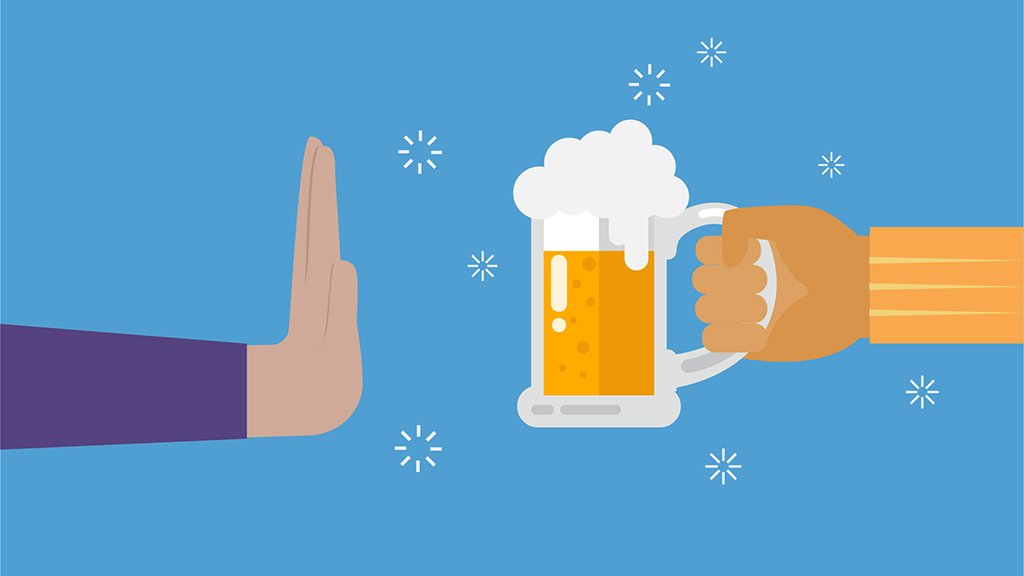- Diseases
- Acoustic Neuroma (14)
- Adrenal Gland Tumor (24)
- Anal Cancer (66)
- Anemia (2)
- Appendix Cancer (16)
- Bile Duct Cancer (28)
- Bladder Cancer (68)
- Brain Metastases (28)
- Brain Tumor (230)
- Breast Cancer (716)
- Breast Implant-Associated Anaplastic Large Cell Lymphoma (2)
- Cancer of Unknown Primary (4)
- Carcinoid Tumor (8)
- Cervical Cancer (154)
- Colon Cancer (164)
- Colorectal Cancer (110)
- Endocrine Tumor (4)
- Esophageal Cancer (42)
- Eye Cancer (36)
- Fallopian Tube Cancer (6)
- Germ Cell Tumor (4)
- Gestational Trophoblastic Disease (2)
- Head and Neck Cancer (6)
- Kidney Cancer (124)
- Leukemia (344)
- Liver Cancer (50)
- Lung Cancer (288)
- Lymphoma (284)
- Mesothelioma (14)
- Metastasis (30)
- Multiple Myeloma (98)
- Myelodysplastic Syndrome (60)
- Myeloproliferative Neoplasm (4)
- Neuroendocrine Tumors (16)
- Oral Cancer (100)
- Ovarian Cancer (170)
- Pancreatic Cancer (166)
- Parathyroid Disease (2)
- Penile Cancer (14)
- Pituitary Tumor (6)
- Prostate Cancer (144)
- Rectal Cancer (58)
- Renal Medullary Carcinoma (6)
- Salivary Gland Cancer (14)
- Sarcoma (236)
- Skin Cancer (294)
- Skull Base Tumors (56)
- Spinal Tumor (12)
- Stomach Cancer (60)
- Testicular Cancer (28)
- Throat Cancer (90)
- Thymoma (6)
- Thyroid Cancer (98)
- Tonsil Cancer (30)
- Uterine Cancer (78)
- Vaginal Cancer (14)
- Vulvar Cancer (18)
- Cancer Topic
- Adolescent and Young Adult Cancer Issues (20)
- Advance Care Planning (10)
- Biostatistics (2)
- Blood Donation (18)
- Bone Health (8)
- COVID-19 (362)
- Cancer Recurrence (120)
- Childhood Cancer Issues (120)
- Clinical Trials (624)
- Complementary Integrative Medicine (24)
- Cytogenetics (2)
- DNA Methylation (4)
- Diagnosis (230)
- Epigenetics (6)
- Fertility (62)
- Follow-up Guidelines (2)
- Health Disparities (14)
- Hereditary Cancer Syndromes (122)
- Immunology (18)
- Li-Fraumeni Syndrome (8)
- Mental Health (118)
- Molecular Diagnostics (8)
- Pain Management (62)
- Palliative Care (8)
- Pathology (10)
- Physical Therapy (18)
- Pregnancy (18)
- Prevention (892)
- Research (390)
- Second Opinion (74)
- Sexuality (16)
- Side Effects (604)
- Sleep Disorders (10)
- Stem Cell Transplantation Cellular Therapy (216)
- Support (404)
- Survivorship (322)
- Symptoms (184)
- Treatment (1772)
The alkaline diet: What you need to know
6 minute read | Published December 10, 2024
Medically Reviewed | Last reviewed by Maria Petzel on December 10, 2024
Curious about an alkaline diet? You’re far from alone.
Maybe you’ve even heard claims that following an alkaline diet can help with everything from weight loss to cancer prevention and treatment. But that’s not exactly true.
Several ideas promoted as part of an alkaline diet are good for your health; however, the alkaline diet is based on several misconceptions about how diet influences pH in the body and how pH influences health, disease and cancer.
Ahead, Maria Petzel uses her experience as a senior clinical dietitian to dive into claims surrounding the alkaline diet and share evidence-based tips on how diet can impact your health.
What does alkaline mean?
Alkaline is another word for basic, or something that has a high pH level.
We can’t talk about the alkaline diet without first talking about pH. Foods, medicines and our bodies all have pH levels. These pH levels are measured using a pH scale which ranks how acidic or alkaline something is on a scale from 0 to 14, with 7 being neutral. Anything under 7 is acidic, and anything over 7 is alkaline. A lower pH number means something is more acidic, while a higher pH number means something is more alkaline.
Our bodies are designed to maintain a very specific pH of the blood, organs and tissues. Normal blood pH is 7.35-7.45. In the rare occasion that somebody’s blood pH is outside of that normal range, it's typically associated with severe illness and is life-threatening.
As the body digests food and processes medications, different elements that are more acidic or alkaline are released into the blood. In response, the lungs and kidneys rapidly filter our blood to take out these extra acid or alkaline components. This constant filtering creates waste products which are removed from the body in fluids such as urine, saliva and sweat. The pH of these waste products varies depending on what is being processed.
What is an alkaline diet?
The alkaline diet is based on the misconception that consuming or avoiding certain foods can change the body’s pH levels and that these pH levels are associated with different health conditions.
Most versions of the alkaline diet suggest cutting out processed foods and added sugars and eating more vegetables, fruits, and some beans and legumes. Some also choose to eat less animal protein and avoid alcohol.
Many of these principles align with general healthy diet recommendations and are even supported by data showing health benefits including cancer risk reduction. However, these benefits are not caused by alkalizing the body. Though we don’t know exactly how diet prevents cancer or promotes health, it is likely related to a diet rich in antioxidants and other phytochemicals providing protection from cell damage and reducing inflammation.
More restrictive versions of the alkaline diet cut out specific fruits, vegetables and almost all grain foods. This can increase your chances of developing vitamin, mineral and potentially fat or protein deficiencies.
Another tenant of an alkaline diet is testing urine pH. While this may make the effects of an alkaline diet seem more tangible, it is important to remember that the pH of urine (or saliva or sweat) doesn’t reflect a change in the blood’s pH level. Instead, this is simply a sign that your body is working to keep the blood’s pH level stable.
Following a restrictive alkaline diet may lead to unnecessary spending on pH testing materials, supplements and special water or filtering systems. It may lead to stress or fear around food and diet.
What should we know about alkaline water?
There is no science to support claims that drinking alkaline water is healthier than non-alkaline water. Alkaline water is essentially mineral water.
While alkaline water isn't harmful, paying for at-home alkalizing systems and alkalized bottled water could put a strain on your budget. Instead, focus on staying well-hydrated by drinking whichever water you prefer, whether that’s sparkling, flat, mineral, non-mineral, spring or purified.
Can the alkaline diet help with weight loss and inflammation?
The alkaline diet recommends eating more fruits and vegetables, drinking lots of water and cutting back on sugar, alcohol, meat and processed foods. For the most part, these choices are decent nutritional advice that can help improve your overall health, aid in weight loss and even help lower your cancer risk – just not by alkalizing the body.
Eating a healthy diet can also help reduce inflammation. Inflammation is a natural response to injury and infection, but too much inflammation, or chronic inflammation, can cause DNA damage and lead to cancer. Eating foods that reduce inflammation can help reduce your cancer risk.
Why is there so much on the internet about the alkaline diet and cancer?
The original interest in an alkaline diet for cancer may be because some tumors can be surrounded by an acidic environment – that is, environments with a low pH. Proponents of the alkaline diet theorize that if you eat a diet high in alkaline foods, or those with a high pH, you can raise the body’s pH levels and therefore make your body a poor environment for cancer. However, the reality is that the acidic environment around these tumors is created by the tumor, not because of it. It is unknown if this acidic environment is of any help to the tumor or simply a waste product.
Cancers can occur in all parts of the body, including the blood which is just slightly alkaline, the stomach which is very acidic and the pancreas which is very basic. There are no good studies that associate variation in pH in the body with good health or ill health, nor is diet able to influence the pH of different body systems.
What is the best diet for cancer and health?
Research shows that there’s no one diet or food that can cure cancer. But proper nutrition can help you feel your best and tolerate cancer treatment better.
MD Anderson dietitians recommend eating healthy foods. Come mealtime, this might look like filling two-thirds of your plate with whole grains, vegetables, fruits, beans, nuts and seeds. The remaining one-third can be lean animal protein or plant-based protein.
If you’re an MD Anderson patient, ask your doctor to refer you to one of our clinical dietitians. Your dietitian can assess your nutrition and talk with you about your nutrition goals, which may change at different stages of treatment. Cancer treatment can cause changes to appetite, taste and the body’s ability to intake and digest food. A dietitian can also help guide you with diet strategies to limit adverse effects on treatment, minimize side effects and help you cope with any new food sensitivities developed since your diagnosis.
Together, you and your clinical dietitian can find the right diet to help you feel your best.
What should someone considering the alkaline diet know?
While a less restrictive alkaline diet is not likely to have any major health risks, it is always recommended to talk to a doctor or a dietitian about your health goals before beginning a new diet.
I don’t want to discourage anyone from including more vegetables, fruits, beans, peas, nuts, seeds and whole grains in their diet and reducing intake of red meat, processed foods and added sugars. While these dietary changes will not impact the pH level of your blood, they could have a positive effect on your overall health.
Request an appointment at MD Anderson online or call 1-844-506-3184.
Related Cancerwise Stories

Dietary changes will not impact the pH level of your blood.
Maria Petzel
Senior Clinical Dietitian





